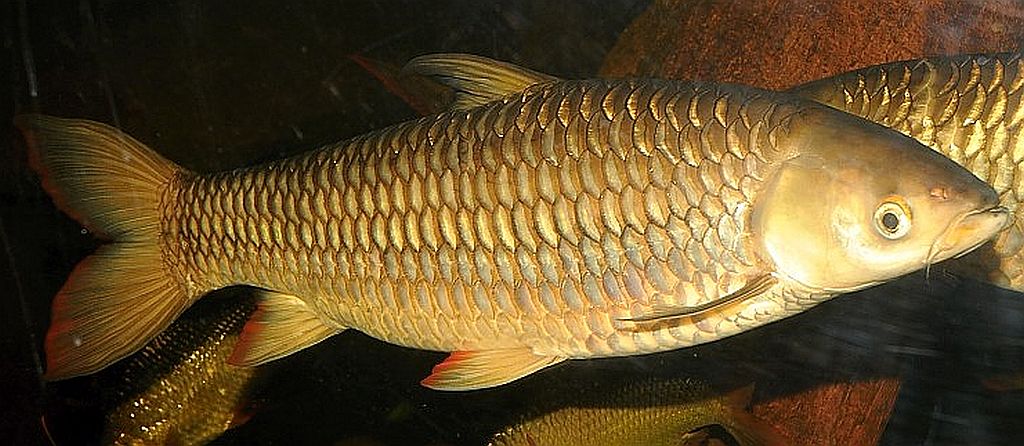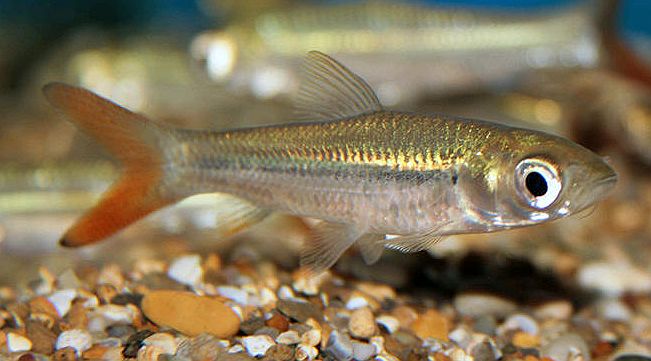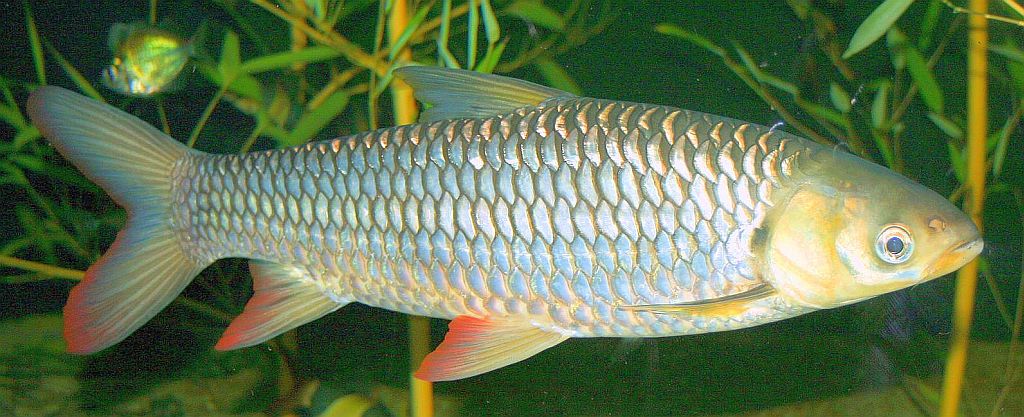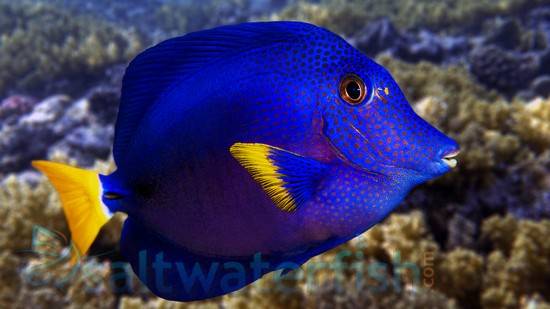The Cigar Shark (Leptobarbus rubripinna) is a migratory species that is also known to tropical fish keeping enthusiasts as the Mad fish, Red Finned Cigar Shark, or Saltan Fish.
The Cigar Shark is a pelagic schooling species that is found in the Mekong, Chao Phraya, and Mae Khlong river drainages throughout Viet Nam, Cambodia, Laos, and Thailand where it mainly inhabits the larger rivers and streams of it’s range. Although they do not adapt well to larger impondments, they are found in some lakes like Bueng Boraphet reservoir in central western Thailand
Adult specimens are usually found in the deeper pools or slower moving stretches of the river, and move into the faster flowing water to feed.
During the rainy season, they migrate into the floodplains and flooded forests where spawning takes place. During the months of January and February, Cigar Shark migrate upstream in the Mekong River and return during the months of May and June.
Cigar Shark feed on insects, vegetable matter, and a number of fruits, some of which are poisonous. They are called “Mad Fish” because they sometimes become intoxicated after eating the seeds from a certain tree in Asia. Although their flesh can be poisonous to humans, they are still harvested from subsistence and commercial fisheries.
Except for public aquariums, Cigar Sharks grow too large for most tropical fish keeping enthusiasts to properly care for. In the wild they can grow to over 39″ in length, and even in an aquarium environment will grow to 24″ or more. Although Juvenile specimens can be temporarily housed in smaller aquariums, even a single specimen when fully grown would require at least a 180 gallon or larger aquarium to be kept properly.
Juvenile Cigar Sharks are mostly silver with a horizontal black and green stripe that runs from the gill plate to the base of the caudal fin, which they lose as adults. Their anal and dorsal fins are translucent with a reddish tinge and the tail is red with slight black edging. As they become adults, they develop relatively large, metallic like, light brown scales with darker edges, and dark red pectoral and anal fins, with red edges on the caudal fin.
If you have the means to keep a shoal of Cigar Sharks, tank decor is not critical however, they need an enormous amount of open swimming space, pristine water quality, a moderate amount of water movement, and high dissolved oxygen content in their system to thrive. A tank set up to mimic a naturally flowing river system with various sizes of gravel, river rock, and small boulders along with some driftwood branches would be an ideal environment for this species.
They can be housed in a community environment with other relatively peaceful larger species but because they are intolerant of the accumulation of organic wastes, they need one or preferably two large external canister filters set up to provide a unidirectional water flow needed to maintain the water quality, water movement, and oxygen levels that are required. Their aquarium should also be provided with a tight fitting cover to prevent them from jumping out of the tank. Cigar Sharks are skittish and powerful jumpers.
To date, the Cigar Shark has not yet been bred in an aquarium environment.
Although Cigar Sharks are primarily vegetarians and non aggressive, they will eat small fish if they can fit them into their mouths. Feed them live, frozen, dry or freeze dried foods such as chopped earthworms, mysis shrimp, river prawn, Krill
, blanched spinach, omnivore pellets, etc.
Cigar Sharks are rarely available to tropical fish keeping enthusiasts however they can be special ordered from specialty importers online or from specialty fish shops. Research this species before purchasing one. It is unfortunate that this species grows far too large for most home aquariums, yet they are still sold. Do your research before you decide on purchasing one.
Minimum Tank Size: 180 gallons
Care Level: Moderate
Temperament: Non-aggressive
Aquarium Hardiness: Hardy
Water Conditions: 73-79° F, dGH 2 – 20, pH 6.0-7.5
Max Size: 24″
Color Form: Silver, Red
Diet: Omnivore
Compatibility: Large shoals, very large community tanks
Origin: Thailand, Laos, Cambodia, Vietnam
Family: Cyprinidae
Life Span: 15 years
Aquarist Experience Level: Intermediate





